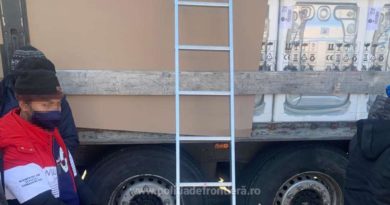Police continue to hunt the traffickers responsible for the 39 people who died tragically whilst being smuggled into the UK – What is the real lesson?
As a response to the migrant camps in Calais, the UK government spent considerable amounts of money on improving security at the Channel ports, with investment in things like specialist fencing, sniffer dogs as well as technology, such as human presence detection systems (sometimes known as heart-beat detectors).
This has proved highly successful with hundreds of detections being made every month.
But almost all that investment has been on the French side of the Channel and almost all of it in Calais and northern France.
However, this success has led to a number of unintended consequences. One very obvious consequence was a surge in dangerous attempts to cross the channel in small boats. Public outcry about the problem led to the UK government having to further invest in a number of extra patrol boats for UK Border Force (UKBF).
A less obvious consequence (until now) is the switch of people trafficking routes to other points of entry.
Traffickers are not stupid, far from it. These are highly organised international criminal organisations, experts in freight and logistics.
Feedback they get from drivers identifies where new security systems are in place almost as soon as they are operational. Traffickers then immediately start taking steps to exploit other routes via ports where these new security systems are not in operation. And unfortunately, that’s pretty much every other port in Europe and the UK.
As far as BSR is aware little, if any of the technology currently deployed by UKBF for detecting stowaways in trucks and trailers in France, is available to them anywhere else, even within the UK.
Purfleet was an obvious choice for traffickers because it is quiet and Zeebrugge is a major European hub, but there are plenty of other ferry routes into the UK that offer the same advantages .
If we are to stem the evil trade of human trafficking, there’s no point plugging one hole and leaving the others open. We must plug them all.
This is not a problem with UKBF or British law enforcement, because there are plenty of people inside UKBF and the National Crime Agency that predicted this would happen.
This is about central government not being reactive to issues as they arise, plugging holes with emergency funding, first in Calais, then in the Channel and now in Purfleet.
What is necessary is the development of a nationwide strategy and a holistic approach to the UK border, applying the same standards of security to every point of entry.
To be effective there needs to be a much higher degree of co-operation between UK and European partner ports, similar to the UK / French model, and greater inter-agency co-operation.
We also need to close the technology gap, making the technology that has been so successful in Calais, available on both sides of channel from Amsterdam to Santander and Hull to Fishguard.
In the end catching and disrupting the trafficking gangs before they load people in trucks or boats is the best way to stop this scourge. But that can never be one hundred percent successful, so effective border security is an essential deterrent and last line of defence.
So, we shall see. If the UK Home Office announce that they are beefing up security at Purfleet, then the real lesson of this tragedy has not been learnt, and we see this scenario played out again and again.
We don’t yet know at what point in the journey these poor young people died. But had they been detected at Zeebrugge or Purfleet, they may well be still alive, waiting to be repatriated to their families, a lesson learnt.
Good security saves lives!


